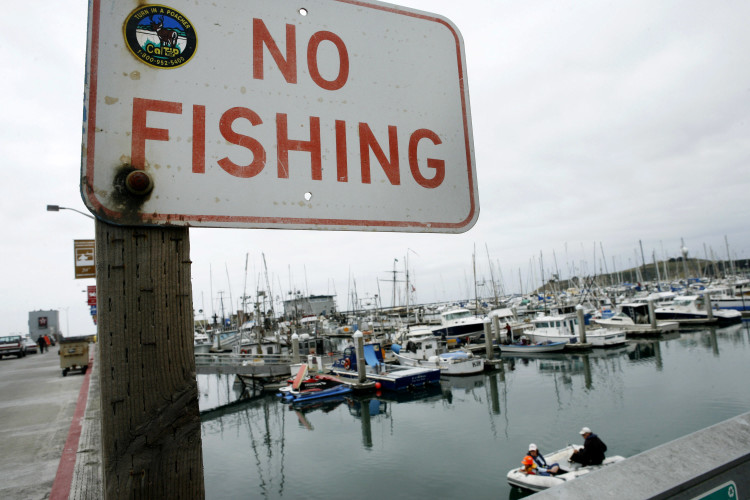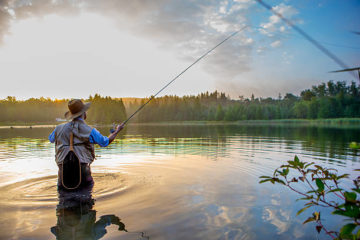The Ongoing Problem of Illegal Fishing

By Johnnie Rame on May 11, 2023
According to reputed fresh tuna suppliers and the best exotic fish exporters around the world, illegal fishing is a huge problem that continues to plague our oceans. This issue has been going on for years, and it does not seem like it will be resolved anytime soon. Millions of dollars worth of fish are caught illegally each year, and this is having a devastating impact on our ecosystem.
What is illegal fishing, and why is it a problem?
Illegal fishing is defined as fishing that is conducted in violation of national or international law. This can include catching fish without a licence, catching fish in protected areas, using banned methods or devices, and catching endangered species. According to the best swordfish suppliers in the industry, it is a problem because it depletes fish stocks, damages the environment, and undermines the livelihoods of legal fishermen.
According to the United Nations Food and Agriculture Organization (FAO), this accounts for 11-26 million tonnes of seafood each year – worth an estimated $US 23.0 billion to $US 24.0 billion. This represents between 15% and 31% of the world’s total catch. In some regions, such as West Africa, up to 90% of the fish caught are thought to be taken illegally.
It is uncontrolled and often unregulated fishing that occurs in protected areas, uses banned methods or devices, or targets endangered species. It is a problem because it depletes fish stocks, damages the environment, and undermines the livelihoods of legal fishermen.
In order to combat this negative trend, we need to increase transparency and traceability in the seafood supply chain. We also need to strengthen fisheries governance and law enforcement and create incentives for sustainable fishing.
The first step is to raise awareness of the problem of illegal fishing and its impacts on our oceans. Only by working together can we hope to solve this problem.
How does illegal fishing impact the environment and local communities?
This has been identified as one of the main threats to global food security and sustainable development. Every year, it costs the global economy billions of dollars and results in the loss of millions of tons of fish.
https://www.google.com/afs/ads?psid=5134551505&channel=AutoRsVariant&cx=9d449ff4a772956c6&fexp=44786615%2C21404&iab_gdprApplies=false&client=pub-2017158377711738&r=m&sct=ID%3D17f4df750ba5a113%3AT%3D1684545500%3AS%3DALNI_MYXQO1QgSkm1gmq60g48tI4gS1DdQ&sc_status=6&hl=en&cpp=5&rpbu=http%3A%2F%2Fgoogle.com&rpqp=q&type=3&rs_tt=c&oe=UTF-8&ie=UTF-8&format=r5&nocache=3061684546227477&num=0&output=afd_ads&domain_name=www.sooperarticles.com&v=3&bsl=8&pac=0&u_his=3&u_tz=-300&dt=1684546227478&u_w=1536&u_h=864&biw=1465&bih=714&psw=1465&psh=4530&frm=0&cl=532122288&uio=-&cont=autors-container-0&jsid=csa&jsv=532122288&rurl=https%3A%2F%2Fwww.sooperarticles.com%2Fnews-society-articles%2Fenvironmental-articles%2Fongoing-problem-illegal-fishing-1855991.html&referer=https%3A%2F%2Fwww.sooperarticles.com%2F&adbw=master-1%3A780
The problem is complex and multi-faceted. It arises from a combination of factors, including weak governance and law enforcement, lack of transparency in the seafood supply chain, and economic incentives for unsustainable fishing.
These illegal methods have serious consequences for our oceans and for the people who depend on them. It undermines the efforts of fishermen who are following the rules, and it jeopardises the long-term
sustainability of our fisheries. It also contributes to overfishing and habitat destruction, and it often involves labour abuses.
The good news is that there are things we can do to combat illegal fishing. We need to strengthen governance and enforcement, increase transparency in the seafood supply chain, and create economic incentives for sustainable fishing. We also need to educate consumers about the problem and empower them to make responsible choices about the seafood they buy.
What can we do to help stop illegal fishing practices around the world?
All of us can play a part in stopping illegal fishing. Here are some things you can do:
- Educate yourself and others about the problem of illegal fishing and its impacts on our oceans, our economy, and our communities.
- Support initiatives to strengthen governance and enforcement of fisheries laws and regulations.
- Urge your government representatives to support these initiatives.
- Increase transparency in the seafood supply chain by asking businesses and restaurants where their seafood comes from and demanding traceability throughout the supply chain.
- Empower consumers to make responsible choices about the seafood they buy by supporting
- ustainable fisheries and Seafood Watch recommendations. You can also vote with your wallet by avoiding fish that are caught illegally or come from unsustainable fisheries.
- Support organisations working to combat illegal fishing, such as Oceana, The Pew Charitable Trusts, and Greenpeace.
How can we make sure that our seafood is caught legally and sustainably?
The seafood we consume has a major impact on the health of our oceans. Overfishing, illegal fishing, and destructive practices are depleting fish stocks, harming marine ecosystems, and jeopardising the livelihoods of honest fishermen. So, what can we do to make sure that our seafood is coming from legal and sustainable sources?
Here are a few things you can do:
- Educate yourself about the issues surrounding illegal fishing and unsustainable fisheries.
- Make responsible choices when buying seafood. Ask businesses and restaurants where their seafood comes from and demand traceability throughout the supply chain.
- Empower consumers to make responsible choices about the seafood they buy by supporting sustainable fisheries and Seafood Watch recommendations. You can also vote with your wallet by supporting businesses and restaurants that are making an effort to combat illegal fishing and support sustainable fisheries.
- Advocate for better management of our oceans, including stronger laws and regulations to combat illegal fishing and protect our ocean resources.
We all have a role to play in ensuring that our seafood is coming from legal and sustainable sources. Let’s do our part to make sure that the seafood we eat is not contributing to the ongoing problem of illegal fishing. With a united front between governments, stakeholders in the industry and consumers, a huge impact can be made in the world to prevent this destructive practice.
sooperarticle.com







No Comment